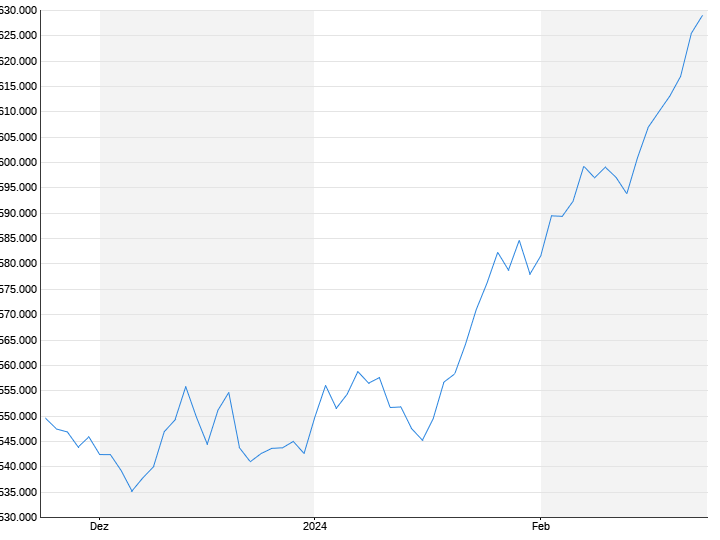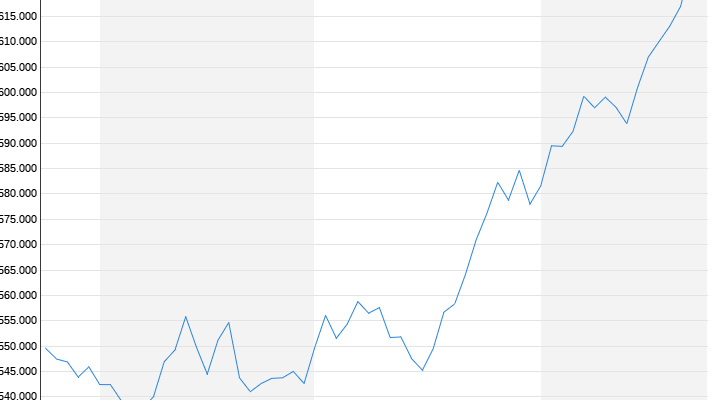Investment guru warns shareholders
Buffett hardly knows what to do with the billions
February 24, 2024, 7:27 p.m
Listen to article
This audio version was artificially generated. More info | Send feedback
The dream profits that Berkshire Hathaway has brought its shareholders so far are probably over. At least the head of the conglomerate, investor legend Warren Buffett, warns against this. A sign that the old strategy is no longer working is an ever-growing mountain of dollars.
Warren Buffett can announce to his shareholders an operating quarterly profit of around 8.5 billion dollars – an increase of almost 30 percent compared to the previous quarter. The cash reserves of his conglomerate Berkshire Hathaway have grown to a record $167.6 billion. But for Buffett, this is less a success to celebrate than a sign that Berkshire’s old business model, which made him an investor legend, is no longer working.
In his annual letter to shareholders, the now 93-year-old Buffett warns that he sees hardly any opportunities for using his capital to achieve outstanding profits with new investments in the coming years. In earlier years, there were a large number of investment opportunities with outstanding profit prospects, writes Buffett. He himself names the insurance companies Geico and National Indemnity, which Berkshire took over decades ago, or the railway company BNSF.
But such options no longer exist now or in the future, says Buffett. “There are only a handful of companies left in this country that have the real ability to make a difference for Berkshire, and they have already been thoroughly vetted by us and others,” the letter said. “There are essentially no candidates outside of the United States that represent meaningful capital deployment options for us.” The problem for Buffett is that Berkshire has become so big in the past few decades that even billion-dollar takeovers, such as those of the rest stop operator Pilot Flying J and the insurance conglomerate Alleghany, have little impact on shareholders. The other problem is that competition among investors has increased significantly and with it the prices for potential takeover targets.
Just “a little bit” better than average

For almost 60 years, Buffett’s strategy, known as “value investing,” has been to acquire companies with solid business models, improve management and profitability, and permanently integrate them into his Berkshire conglomerate. However, profits from short-term buying and selling of companies and stocks on the stock market do not play a major role for Buffett.
The fact that Berkshire achieved a book profit of $37.5 billion in the last quarter, including price gains from its investments, is not a relevant figure for Buffett. Because the price gains on the stock market are “meaningless” for him. “We believe that gains and losses from investments in stocks, whether realized through dispositions or unrealized through changes in market prices, are generally insignificant in understanding our periodically reported results or evaluating the economic performance of our operations ¤fte,” says a statement accompanying Berkshire’s annual report.
Berkshire will no longer develop as strongly in the future as in the past, Buffett now warns. Since he took over Berkshire in 1964, a class A share was trading at just over $12; today it is over $630,000. According to the Financial Times, Buffett has outperformed the leading US stock market index by more than 100 times. In the future, Buffett now writes, we will probably only be “slightly better” than the average US company. What is more important, however, is that Berkshire works with a lower risk of total loss. Buffett further writes: “Anything beyond ‘a little better’ is wishful thinking.”
